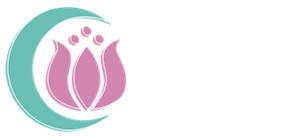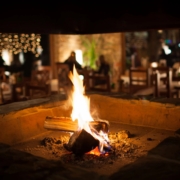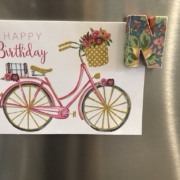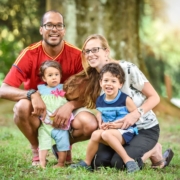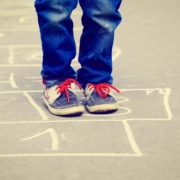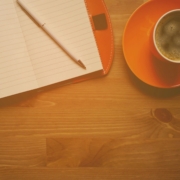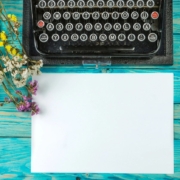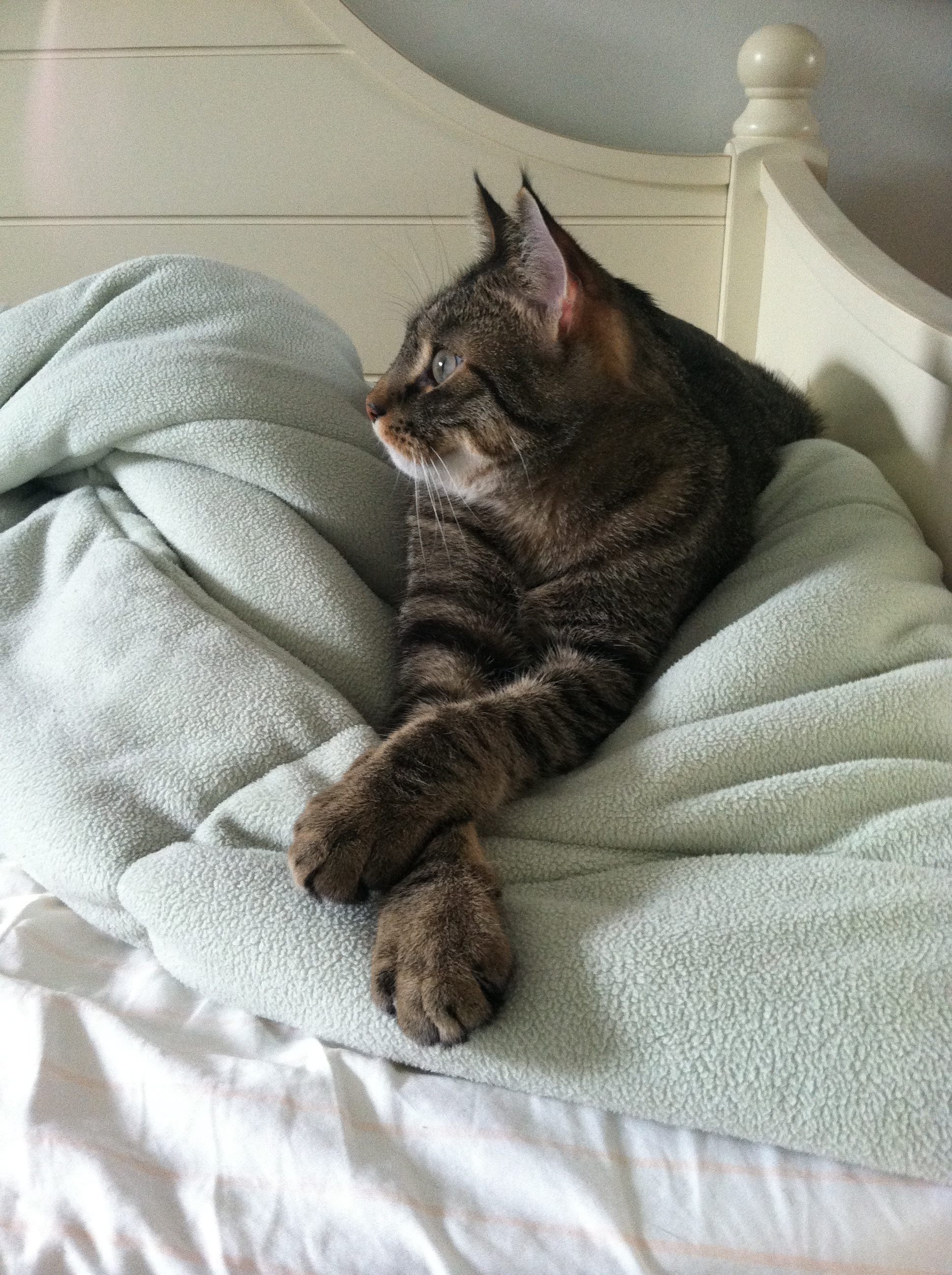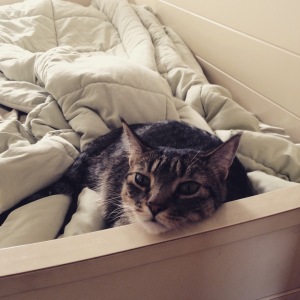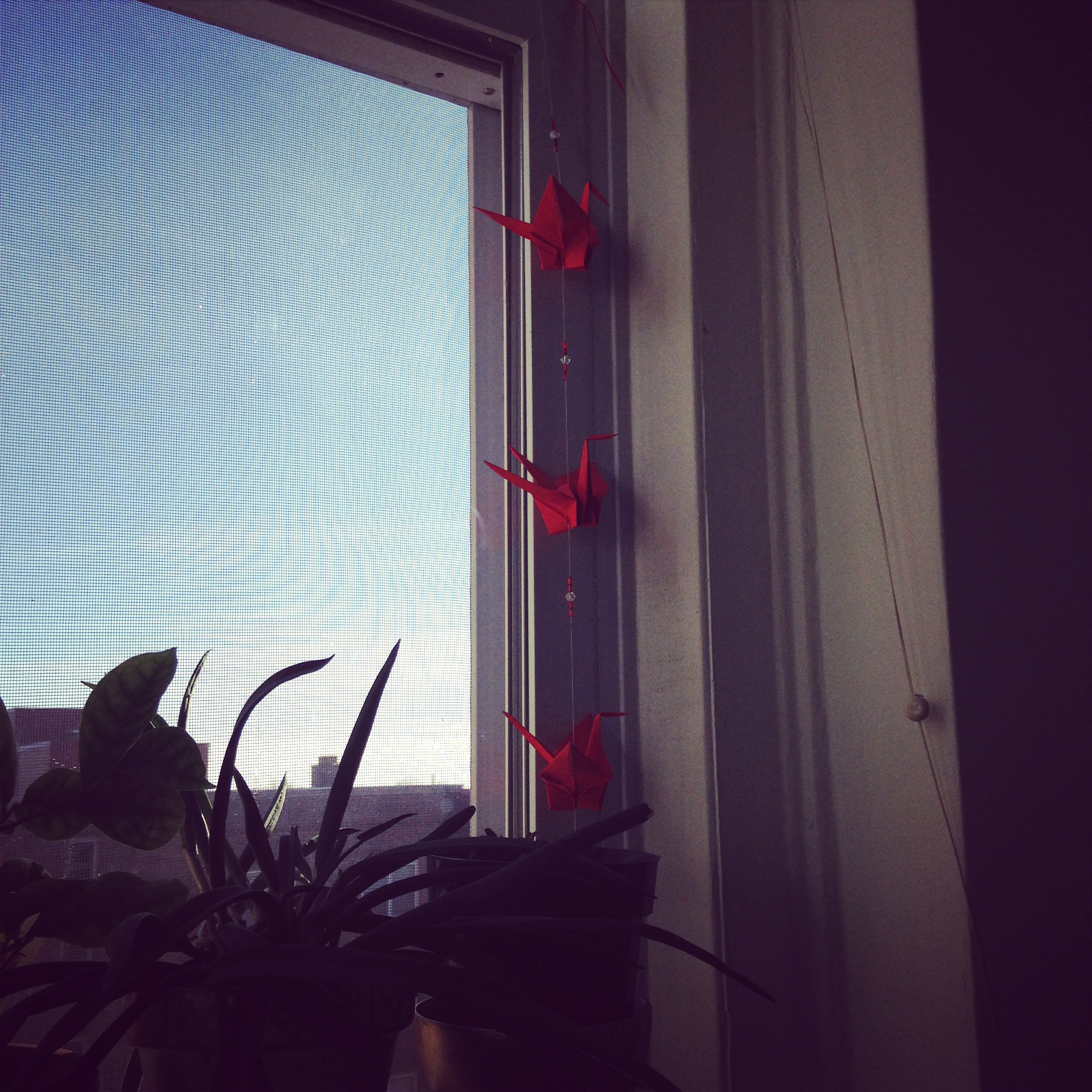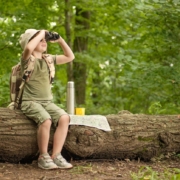The operating system of my Mac, the tech told me, did not have enough internal space. It was stuck. It could not go back to the old operating system but it also could not go forward. My only option was to delete the old operating system, with all the rows of folders, full of e-papers, and everything else the laptop had accumulated over the years. My heart sped up. I took off my sweater. I thought of all the essays I had been working on and various documents and the photographs … all the stuff.
I had no choice if I wanted a working computer, so I calmly said, “Yes, let’s go ahead and do that.”
It started a week ago. I began a Kundalini yoga practice to clear out “stuck” emotions and the past. I have been working on this, on and off, for years. I’ve cleaned out my closets and simplified my life, and although I have made progress and significant changes, I’ve been holding onto the past in a few forms, such as relationships with unavailable people and overeating/overindulging, which started when I was young. Food and gifts and goodies got wired together in my brain with, you guessed it, love (and, I think, security and safety). I developed an insatiable need for more … more delicious food (even though I was stuffed), more sweets (one dessert at night was never enough, even though my body was telling me it could not handle the sugar), more nice things, like expensive clothing (even if my bank account was in a precarious place). In a nut shell, dysfunctional behavior. It was all in an unconscious attempt to connect to a feeling of being loved and not alone (in the lonely sense), which starts with feeling that L-word for yourself (that’s Chiron in Taurus in my Astrology chart, for those who care :)).
I was able to transform many of my self-defeating habits, like spending on clothing and things I didn’t need. After some time with a consistent yoga/meditative practice, it became clear that shopping and constantly searching for something to fill the void wasn’t bringing me joy and, if anything, was making me unhappy. Instead, I focused on practices that were nourishing me, like yoga and walks/hikes in nature and connecting genuinely with people on a similar path (for so many years, I was in hiding, disconnected from myself, others, and the world).
So, last summer, motivated by my mother’s death, I took a look at some of the habits I was still holding onto and how they keep me stuck in patterns that stunt forward movement in a positive direction.
After the devastating experience of witnessing my mom become sicker and sicker due to tumors in her liver and all the chemicals to try to slow down the process, I decided to “get serious” about my health. I have, for most of my life, been fortunate to eat well, to enjoy fresh food, starting with my grandparents’ big vegetable garden in our backyard (my childhood roots), and I care about my health (hell, I have certifications in Ayurveda Counseling and Yoga), but I also have the aforementioned overindulgent gene, plus a mean sweet tooth that comes out at night. The witching hour.
Last June, the month of my mother’s birthday, I finally changed my eating habits.
In the Ayurvedic system, your individual constitution, or body-type, determines which foods and daily practices are most supportive and balancing for you, so what works for me may not be the exact right fit for you. Traditionally, the Vata (or air element) Dosha, which is one of my primary Doshas, does well with a little meat and dairy, but as mentioned above, due to our chemical-laden commercial food system and, also, for ethical reasons (how animals are treated and the effect on the environment) I cut way down; I tried to cut them out entirely, but when I have too many dietary restrictions I feel confined and start to rebel, so I settled for having meat and dairy every once in a while and doing my best to eat organic, grass-fed, etc. when I do.
The dietary and lifestyle changes I’ve made have lead to happier mornings. I used to say “I am not a morning person,” but that was in large part due to abusing my body the night before; I was depleted, fatigued and unfocused, from all the refined sugar and also eating more than my poor system could handle. In the practice of Ayurveda, eating when you are not hungry is one of the worst things you can do. I have more energy now than I’ve had in a very long time — maybe ever. I slip up, now and again, and go back to my old ways, but, mostly, it just serves as a reminder that I don’t want to feel stuffed and heavy, anymore. I am done with that state of being. Being stuffed is a way to not feel, to avoid and numb out … the same as a drug. These days, I’d rather feel clear and light enough to do a meditation before bed, or at least feel good/balanced when I go to sleep.
About a week into my kundalini program, which is, basically, intensive breath-work along with movement, I was feeling a shift — brighter. Then stuff starting coming to the surface. Old stuff. Rejection. I had a dream about waiting in line for coffee; I was last in line and got the last, not even full, cup of cruddy, muddy looking coffee. I stared it, wondering, what the heck happened to that poor cup o’ Joe. I accepted the coffee, after waiting so long for it, even though I wasn’t sure I could drink it. In the same dream, I became aware that I was purposely not invited to a party, or gathering, that my friends were having; I felt excluded and betrayed. I am conjuring up one of my favorite childhood books here, Alexander and the Terrible, Horrible Very bad, No Good, Very Bad Day). Next, I was at work, at a store; customers had come behind the counter, in my space, without asking; they were blow-drying their hair and putting on makeup, and being loud and disrespectful, even though they knew I was trying to work and that they didn’t belong there. I asked them to leave and said there was a bathroom down the hall where they could do their primping. All of these strange, seemingly disjointed events seem to be pointing to getting the raw end of the deal or short end of the stick, as they say, and a need to value myself and affirm stronger boundaries (the root cause of the self-defeating habits and my Taurus/Chiron combo, which is also connected to my moon and sun, by the way.).
Simultaneously, and for the last several months, my website was under attack. I was receiving multiple emails, weekly, from my website security app. that indicated someone or something was attempting to log into my site from various IP addresses; they’d try, over and over, and get locked out and then try again the next day or week. They’d been at it for many months, determined to “break the code.” I mostly ignored it because I didn’t want to spend extra money for a website I wasn’t utilizing, but I changed my password frequently in hopes that I was a few steps ahead of the hackers.
The day before my operating system deletion, I decided to strengthen my website security once in for all; be gone with you, pesky hackers. I had started writing blogs again and I have been working hard on them, so I didn’t want some a-holes holding my writing for ransom. I called Go Daddy and added a firewall. Take that.
The operating system, the tech told me, did not have enough internal space. “You mean the only way is to delete everything on my computer?”
“Yes, I’m very sorry, she replied, her voice was small and quiet, as if someone had died.
The only way out was a new system. A wipe-out.
I assumed I had lost everything and wasn’t able to fully comprehend in the moment what that meant, and even though I was anxious and knew I might be devastated later in the day, I also felt, weirdly, excited and ready.
My prior desktop was filled with rows of folders, many of them filled with documents I had not opened in many years. Now I stared at a blank and unfamiliar screen. I opened icloud and discovered that most of my essays and important documents were saved there. I pressed my hand to chest. Whew. All of that work on so many essays, over many years, had not vanished. My apps were gone, however, including my Astrology app. that I use to create natal charts (after two inquiries to the company I still haven’t been able to retrieve it, but that is “a small price” compared to what I thought I had lost).
I have the sense of a clean slate when I look at my new blank desktop, and I am hesitant to save anything to it; I like the look of it.
My next project is to go through my documents on icloud and, slowly but surely, delete everything I no longer need.
